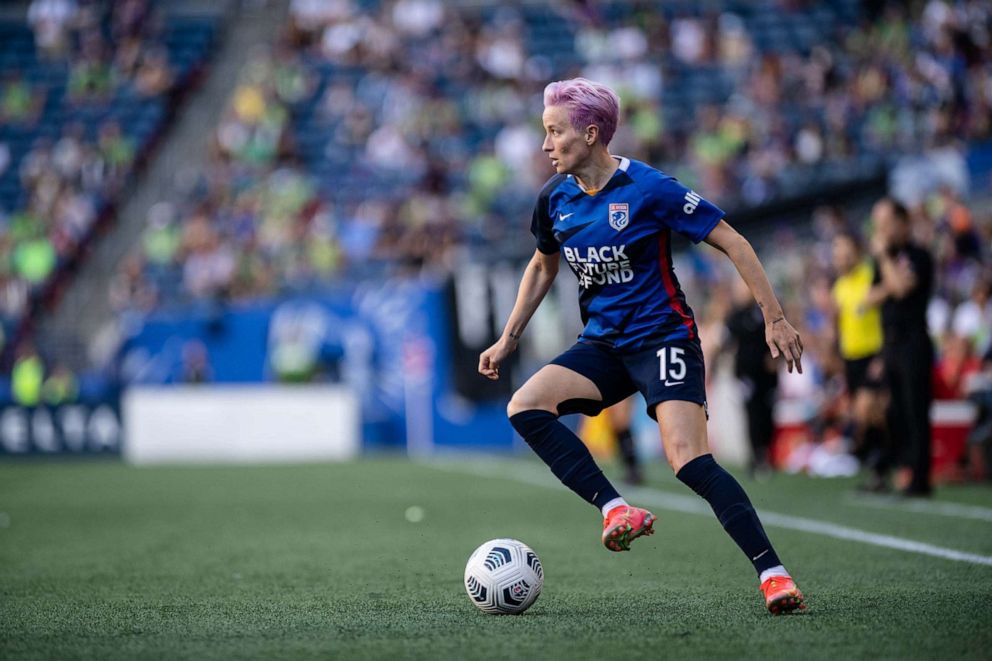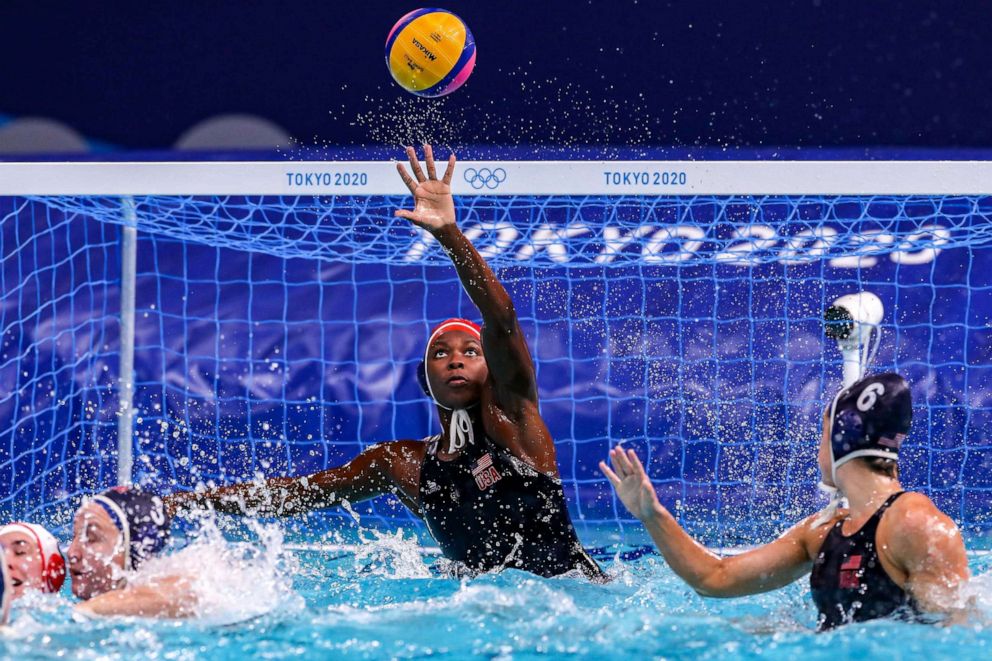500 US women athletes ask Supreme Court to uphold abortion rights
Advocates called the amicus brief by women athletes historic.
A decorated group of more than 500 current and former American women Olympians and professional and collegiate athletes is warning the U.S. Supreme Court in a new legal filing that eroding access to abortion care in America will be "devastating" to women's athletics at all levels.
"If the state compelled women athletes to carry pregnancies to term and give birth, it could derail women's athletic careers, academic futures, and economic livelihoods at a large scale," the women write. "Such a fundamental restriction on bodily integrity and human autonomy would never be imposed on a male athlete, though he would be equally responsible for a pregnancy."
Among the named signatories are U.S. soccer star Megan Rapinoe; Olympic water polo player Ashleigh Johnson; WNBA star Diana Taurasi; U.S. women's soccer national team captain Becky Sauerbrunn; and, Layshia Clarendon, a former WNBA all-star and current vice president of the Women's National Basketball Players Association.

The filing -- known as an amicus, or friend-of-the-court, brief -- was made in the case Dobbs v. Jackson Women's Health Organization, a blockbuster abortion rights showdown scheduled for oral argument at the Supreme Court on Dec. 1.
The state of Mississippi has explicitly asked the court to overturn nearly 50 years of abortion rights precedent since the 1973 decision in Roe v. Wade, allowing states to set stringent new restrictions on early term abortions, if not outlaw them entirely.
"As women athletes and people in sports, we must have the power to make important decisions about our own bodies and exert control over our reproductive lives," Rapinoe said in a statement. "I am honored to stand with the hundreds of athletes who have signed onto this Supreme Court brief to help champion not only our constitutional rights, but also those of future generations of athletes."
The signatories are all women who "have exercised, relied on the availability of, or support the constitutional right to abortion care in order to meet the demands of their sports," according to the brief.
Women's rights advocates said it was the first time a large group of female American athletes publicly took a stand in support of abortion access.
Crissy Perham, a double gold medalist and captain of the 1992 U.S. Olympic swim team, offered one of several personal testimonies in the brief attesting to her experience obtaining an abortion.
"When I was in college, I was on birth control, but I accidentally became pregnant," she wrote. "I decided to have an abortion. I wasn't ready to be a mom, and having an abortion felt like I was given a second chance at life."
"That choice ultimately led me to being an Olympian, a college graduate and a proud mother today," Perham wrote.
Several athletes described the importance of the Supreme Court precedent in laying the groundwork for more women to participate in athletics and as a "safeguard" in case birth control failed.
"As a victim of rape during my junior year of college, I was comforted in the fact that if I were to fall pregnant and need an abortion, I would have access to that service," a Division I field hockey player, who was not identified by name, wrote in the brief.

Ashleigh Johnson, the first Black woman on the U.S. Olympic water polo team and member of the gold-medal 2016 and 2021 Olympic teams, said she wants the justices to see abortion access a matter of racial justice.
"It is well-established that women of color experience real disparities in accessing health care services, including contraceptive, abortion and other reproductive care," Johnson said in a statement. "I hope we can have a real conversation as a country about valuing Black women's autonomy."
The case will be argued in December and is expected to be decided by the end of June 2022.
What you need to know about the Texas abortion law




